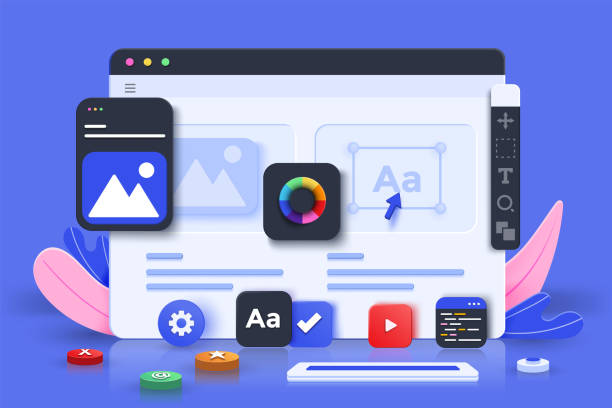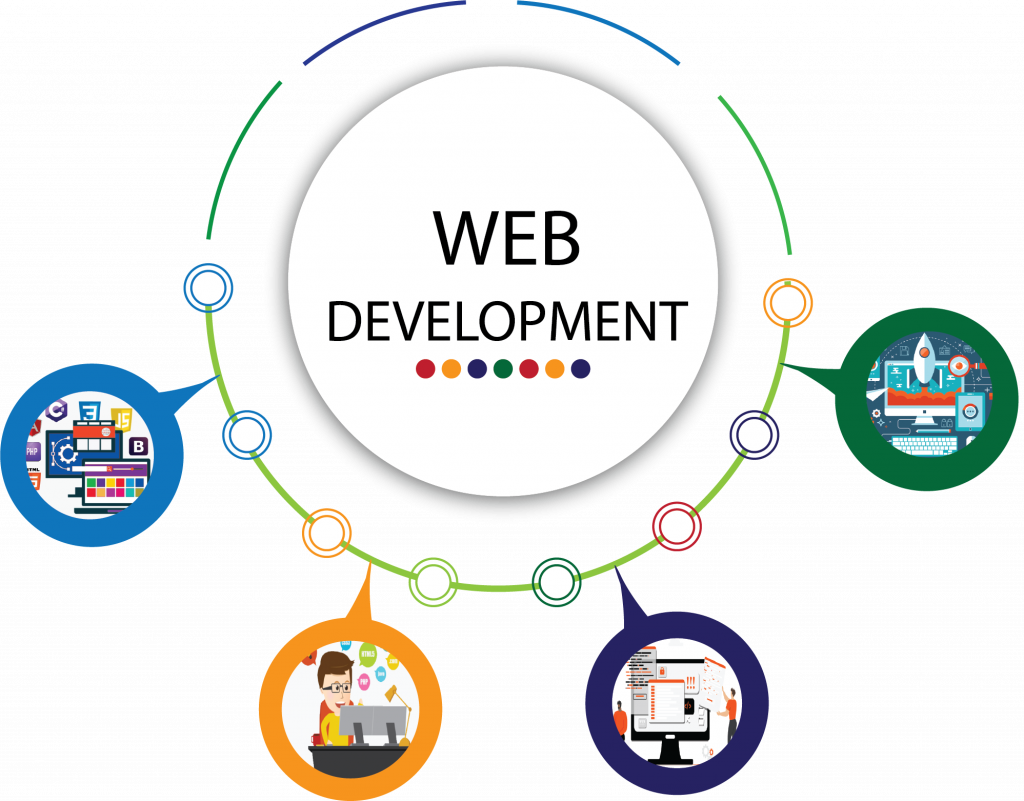Your Guide to Modern Web Development: Trends and Ideal Practices
In the quickly advancing landscape of internet advancement, comprehending the most recent fads and finest techniques is essential for developing relevant and appealing digital experiences. Key factors to consider such as customer experience, receptive design, and access are not just optional but important to the success of modern applications.
Emerging Technologies in Internet Advancement
The evolution of internet advancement is marked by a relentless quest of technology, driven by the need to boost user experience and enhance processes. Arising innovations continue to improve the landscape, offering developers effective tools to develop even more vibrant and receptive applications. Secret among these innovations are Progressive Internet Apps (PWAs), which blend the most effective of internet and mobile apps, providing offline functionality and improved performance.
One more substantial innovation is the rise of Artificial Knowledge (AI) and Artificial Intelligence (ML), which enable individualized individual experiences and data-driven decision-making. These technologies promote chatbots, referral systems, and improved search performances, thus changing just how users engage with internet applications.
In addition, the fostering of frameworks like React, Vue.js, and Angular has actually revolutionized front-end advancement, promoting modular design and effective state management. On the back end, serverless style and microservices foster scalability and flexibility, enabling developers to focus on composing code without managing infrastructure.
Importance of User Experience
Individual experience (UX) has actually become a crucial emphasis in internet development, specifically as emerging modern technologies reshape interactions. A favorable UX not only improves individual contentment however also drives interaction, retention, and conversions. ecommerce web development perth. In a progressively competitive electronic landscape, companies must focus on UX to differentiate themselves and fulfill customer assumptions
Reliable UX style is rooted in recognizing customer demands and behaviors. This entails conducting thorough study, developing customer characters, and utilizing use screening to gather understandings. By doing so, programmers can produce intuitive interfaces that promote smooth navigating and reduce rubbing points.
Additionally, a well-designed UX can substantially impact a site's efficiency metrics. Researches have revealed that individuals are more probable to abandon a website if they encounter bad functionality or excessive filling times. On the other hand, a streamlined, user-centric style can cause reduced bounce rates and increased time invested in the site.
Accepting Responsive Style
In today's diverse digital landscape, accepting receptive layout is essential for making sure optimal individual experiences across numerous gadgets. With an enhancing variety of users accessing websites through smartphones, tablets, and desktops, a receptive style method enables material to adapt perfectly to various screen dimensions and positionings.
Receptive style employs liquid grids, flexible photos, and CSS media queries to produce a vibrant layout that changes in real-time. This methodology not just improves usability however additionally adds to boosted online search engine positions, as search engines favor internet sites that offer a constant experience throughout devices. Furthermore, receptive layout reduces the requirement for numerous variations of a site, enhancing upkeep and updates.
Moreover, responsive style promotes better involvement by offering a tailored experience, keeping individuals on the website much longer and lowering bounce prices. As customer behavior remains to develop, buying responsive style is essential for businesses aiming to enhance customer complete satisfaction and drive conversions. In summary, embracing responsive style is not simply a pattern; it is an essential method that lines up with the expectations of contemporary users, guaranteeing ease of access and capability no matter the device they choose to use.
Accessibility in Web Development
Creating a website that is both receptive and available is important for reaching a larger audience. Access in internet advancement guarantees that all users, no matter their capacities or specials needs, can successfully engage with electronic web content. This includes individuals with aesthetic, auditory, cognitive, or motor problems.
To accomplish ease of access, developers need to comply with the Web Web Content Ease Of Access Guidelines (WCAG), which give a framework for making web material much more perceivable, operable, understandable, and durable. Key techniques include making use of semantic HTML aspects, providing different text for photos, making sure sufficient shade contrast, and allowing keyboard navigating.
Moreover, carrying out ARIA (Accessible Rich Net Applications) characteristics can boost accessibility, especially for vibrant content and progressed interface. Evaluating with actual users, including those with specials needs, is vital to identify prospective obstacles and improve individual experience.

The Increase of Progressive Web Applications
A considerable shift in internet development has emerged with the increase of Progressive Web Apps (PWAs), which seamlessly combine the very best features of mobile applications and traditional internet sites (ecommerce web development perth). PWAs are made to supply individuals with a quick, trustworthy, and appealing experience, no matter their web link. This is accomplished through solution employees, which allow offline capabilities custom web development perth and history syncing, making certain that customers can access material even in low-connectivity situations
PWAs additionally take advantage of responsive layout concepts, making sure that they function efficiently across a variety of tools and screen sizes. This flexibility is critical in an age where consumers significantly rely upon mobile devices for their on-line activities. PWAs eliminate the demand for separate application store installments, allowing for less complex and much more accessible distribution.

Conclusion
In final thought, contemporary internet growth demands a complex approach that incorporates arising modern technologies, user experience, responsive design, accessibility, and the application of Modern Web Apps. Adhering to these patterns and finest methods not only enhances user engagement but also fosters inclusivity, ensuring that digital web content comes to varied target markets. By focusing on these aspects, designers can create her comment is here impactful applications that meet the evolving needs of customers in a significantly electronic landscape.